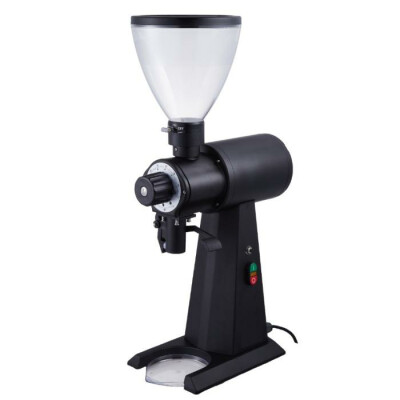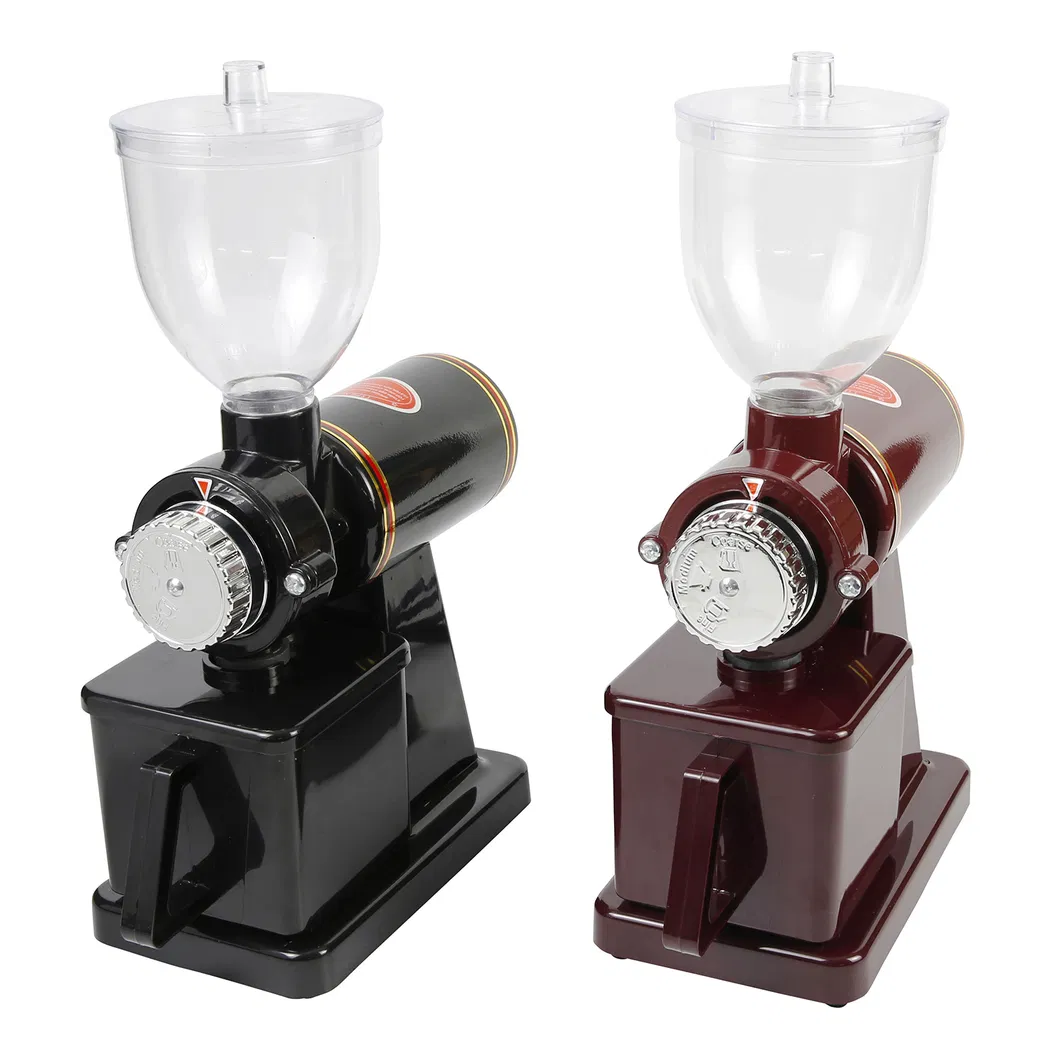How an Industrial Coffee Grinder Can Enhance Your Coffee Quality
How an Industrial Coffee Grinder Can Enhance Your Coffee Quality
Blog Article
Just How to Choose the Perfect Industrial Coffee Mill for Your Company
Choosing the ideal industrial coffee grinder for your service is a multifaceted decision that needs cautious factor to consider of a number of crucial elements. It is crucial to examine your particular grinding demands, consisting of the quantity of coffee processed and the preferred work uniformity, as these components straight affect taste and consumer complete satisfaction. Additionally, understanding the various sorts of mills readily available can substantially influence your operational efficiency. As you navigate these factors to consider, one must additionally consider the effects of spending plan and maintenance. What other elements could make or damage your choice?
Assess Your Grinding Needs
When selecting a commercial coffee mill, one need to initially assess their grinding requirements to make sure ideal efficiency and consistency. This first assessment includes understanding the quantity of coffee to be refined daily, along with the desired work dimension for different developing techniques. A high-capacity mill may be needed for organizations serving big amounts of coffee, while smaller operations may discover a much more small design sufficient.
Moreover, it is vital to consider the sorts of coffee beans being utilized, as different beans might require particular grinding methods to achieve the most effective taste profile. Oily beans may demand a grinder created to deal with such features without clumping or overheating.
Specialty coffee companies frequently require specific grind sizes to improve extraction and flavor, making it important to choose a grinder that can provide consistent outcomes. Examining the available space and electrical needs will aid in selecting a mill that fits flawlessly right into your functional process.
Understand Grinder Types
Understanding the different kinds of commercial coffee grinders is crucial for making an educated choice that meets details functional requirements. There are mainly two classifications of grinders: blade mills and burr mills.
Blade grinders use spinning blades to chop the coffee beans, leading to an irregular work size - Industrial Coffee Grinder. While they may be much more inexpensive, they are frequently not suitable for commercial applications where precision is necessary
On the various other hand, burr mills provide an extra uniform grind by crushing the beans in between 2 surfaces. They can be further categorized into level burr and conical burr grinders. Apartment burr mills offer a consistent work dimension and are typically preferred for coffee preparation, while conelike burr mills are versatile and can handle a series of brew methods, from coffee to French press.
When picking a mill, think about the particular requirements of your business, consisting of preferred work uniformity, manufacturing volume, and the kinds of coffee drinks you prepare to supply - Industrial Coffee Grinder. Each mill type has its benefits and restrictions, so understanding these nuances enables notified decision-making that aligns with functional goals
Evaluate Grind Dimension Consistency
Achieving work size consistency is essential for generating top notch coffee, as variations in particle size can dramatically influence extraction and flavor. When picking a commercial coffee mill, it is crucial to evaluate exactly how well the maker keeps harmony in grind size across various batches. Inconsistent grind dimensions can bring about unequal extraction, causing a cup that may taste excessively bitter or weak.
To examine work size consistency, consider mills with attributes such as adjustable work settings and top notch burrs. Burr grinders, in particular, master generating consistent fragment dimensions contrasted to blade grinders. The material and form of the burrs play a vital function, with stainless-steel and ceramic options offering toughness and precision.

Consider Manufacturing Capacity
In the hectic world of coffee production, thinking about manufacturing ability is extremely important for organizations intending to meet demand without sacrificing visit high quality. The manufacturing ability of an industrial coffee mill directly influences a firm's ability to fulfill orders effectively, manage supply, and react to fluctuating market fads.
When assessing manufacturing capacity, it is vital to evaluate the mill's outcome price, usually measured in extra pounds per hour. This dimension needs to line up with your service's forecasted sales quantity and growth targets. As an example, a café with a high turnover might call for a grinder that can refine numerous hundred extra pounds read more daily, while a smaller operation might be sufficient with a lower ability model.
Additionally, take into consideration the type of coffee being processed. Various beans and blends may affect grinding rate and efficiency, necessitating a grinder efficient in handling varied manufacturing needs. It's additionally worth considering the grinder's ability to maintain constant high quality under high output problems, as any kind of variations can affect the last item.
Eventually, selecting a mill that matches your service's production capacity will guarantee you continue to be affordable and receptive to client assumptions.

Budget Plan and Upkeep Factors
When assessing the ideal commercial coffee mill, spending plan and upkeep elements play a considerable duty in the general decision-making procedure,. A preliminary investment in a high-grade grinder can yield lasting benefits, yet it's necessary to establish a clear budget plan that aligns with your company's functional needs. Think about both the purchase price and possible operational prices, such as power consumption and replacement parts.
Maintenance is one more crucial aspect that can influence your budget plan. Industrial coffee grinders call for regular upkeep to make certain optimal efficiency and long life. Examine the maker's recommendations for upkeep, consisting of cleansing schedules and components substitute, as these will affect lasting functional costs. Additionally, consider the schedule of solution and support, as reputable assistance can reduce downtime and repair work costs.

Buying a mill that is sturdy yet useful content very easy to keep can conserve money in time. While lower-priced alternatives may be alluring, they might incur greater maintenance expenses and reduced efficiency. Inevitably, stabilizing preliminary costs with long-term maintenance and functional effectiveness will direct you to the finest selection for your business's coffee grinding needs.
Final Thought
Picking the ideal commercial coffee mill demands a thorough examination of grinding requirements, grinder kinds, grind size uniformity, manufacturing capacity, and monetary factors to consider. By prioritizing these elements, companies can make certain the procurement of a trustworthy, efficient mill that fulfills specific operational needs. A well-chosen mill not just boosts the high quality of the coffee produced yet also adds to the general success and profitability of the enterprise. Lasting performance and maintenance ease must remain central to the decision-making process.
Specialized coffee services commonly require precise work sizes to boost extraction and flavor, making it vital to pick a mill that can deliver consistent results. Flat burr grinders use a consistent grind size and are normally favored for espresso prep work, while conical burr grinders are versatile and can handle an array of mixture approaches, from espresso to French press.
When choosing a commercial coffee grinder, it is critical to evaluate exactly how well the equipment keeps uniformity in work dimension across various sets. Burr mills, in specific, excel in creating uniform bit sizes contrasted to blade mills.Choosing the excellent commercial coffee mill demands a thorough analysis of grinding requirements, grinder types, grind size consistency, manufacturing capacity, and budgetary considerations.
Report this page